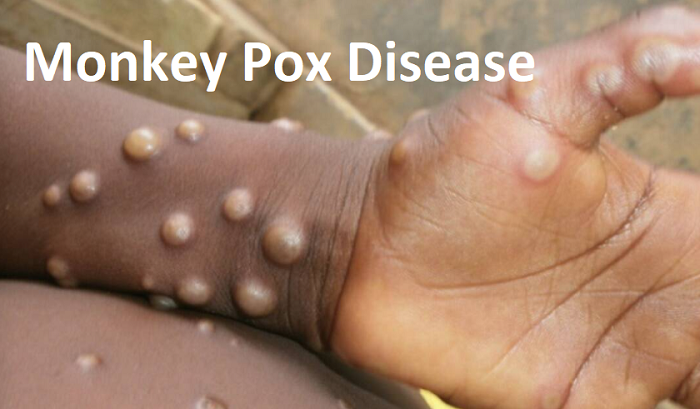Monkeypox – Symptoms, Precautions, Treatment: If you have a fever, body aches, swollen lymph nodes, a new rash, or sores and you feel sick. If you have recently had contact with an infected person, make a quick call to your healthcare professional.

What is Monkeypox?
Similar to smallpox, Monkeypox is a rare infection brought on by the monkeypox virus. According to reports, it is related to the pathogen that causes smallpox, the variola virus. It is primarily prevalent in some parts of Africa; also been found in other parts of the world. Although there is no known treatment for monkeypox. It usually vanishes on its own but is rash that may not go away for several weeks. When someone has this infection they may suffer symptoms similar to the flu, such as fever, and chills, known as Monkeypox Virus.
Signs and Symptoms of Monkeypox
The appearance of the rashes is the diagnostic sign of the monkeypox virus, the initial appearance of the rash resembles flat patches after some time all of the flat rashes transform into raised bumps, fluid-filled blisters, and ultimately pus-filled white or yellowish wounds.
Also Read: Scarlet Fever Symptoms, Care, Treatment, Prevention Tips
Early warning signals before the rash can occur include: fever, headache, sore throat, cough and enlarged lymph nodes
Monkeypox- Precaution and Prevention
- Keep the child’s skin rash covered, a child must keep safe from dust, soapy water and other related things that may not spread the disease more.
- Remind your kid not to touch or scratch the rash on their face or their eyes.
- Keep the child away from other people and animals. Try just one person should take care of them.
- If the infected child is two years old or older and the caretaker needs to care for them, they both need to wear a respirator or a mask that fits properly. Wear gloves when working with bandages or garments on children.
- When providing medical care to those who have the monkeypox virus, put on personal protective equipment. Frequently touched surfaces should be cleaned and disinfected.
- Until the child is no longer contagious, keep them home and away from school or other activities.
- Keep your distance from sick, dead, or infectious animals.
- Avoid making contact with contaminated bedding and other items.
- Keep your distance from others who may be carrying the virus, and periodically wash your hands with soap and water.
Monkeypox –Treatment
Monkeypox does not currently have an approved antiviral treatment. Monkeypox symptoms typically last for two to four weeks and are self-limiting. Usually, monkeypox heals on its own, without the need for treatment. Although, there are now the following medicinal preventative strategies available to treat monkeypox.
Tecovirimat (TPOXX, ST-246) is either an injection or a pill depending on the patient’s weight and age. The medicine is mixed with semi-solid meals for children less than 28.6 pounds.
Injection of immunoglobulin for a vaccination (VIGIV)– Medical professionals only consider this vaccination in the most severe circumstances.
Both Vistide and Tembexa (Brincidofovir), antiviral medicines for the Monkeypox virus, are used to treat the disease.
